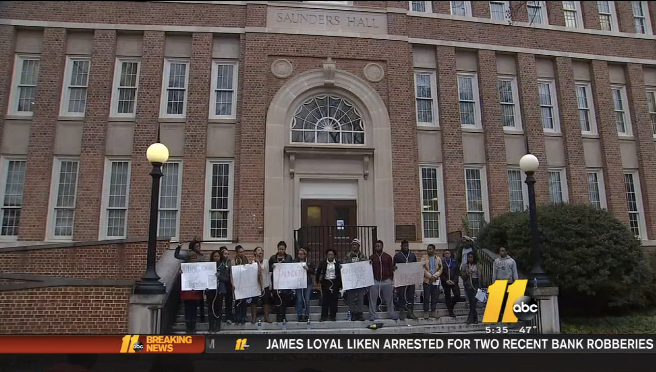The University of North Carolina’s trustees voted Thursday to rename the campus’ Saunders Hall. The building was originally dedicated to the memory of a man named William L. Saunders for a number of reasons, one of which in particular is no longer considered a good reason to name a building after someone. Per the school’s press release:
In 1920, University trustees named Saunders Hall to recognize William L. Saunders, an alumnus and trustee from 1874 to 1891. They cited his service as North Carolina’s Secretary of State from 1879 to 1891, his record as a compiler and editor of the Colonial records that became the foundation of the current State Archives of North Carolina, and his leadership of the Ku Klux Klan (KKK).
The issue was brought to public attention by student activists, and the building will now be called Carolina Hall, which, while not the most creative choice, has the advantage of not commemorating “the chief organizer of the Ku Klux Klan in North Carolina and Chapel Hill.”
The decision, though, was not without controversy. Trustees also voted for a 16-year freeze on renaming any other buildings on campus in order to give the administration time to “develop a program for contextualized education on campus history.” The long freeze—and the trustees’ decision not to take activists’ suggestion to rename Saunders Hall after Zora Neale Hurston—has upset some students. What’s more, three trustees voted against renaming Saunders Hall at all. Those three trustees:
- Peter Grauer, the chairman of former New York City Mayor Michael Bloomberg’s financial-media megacompany Bloomberg LP
- Haywood Cochrane, the chairman of a company called DARA Biosciences that appears to specialize in oncological pharmacology
- Dwight Stone, who runs his family’s homebuilding company
Cochrane discussed his vote at a press conference, per the Raleigh News & Observer:
“Many of us were more conflicted toward the end of this process than where we were when we began,” Cochrane said, adding that he voted “no” because of a sense of history and the different constituents the board serves.
The UNC trustees did vote unanimously to place a marker near Saunders/Carolina Hall explaining its history and to create an educational program (of a format yet to be determined) that addresses race-related aspects of the school’s history.
